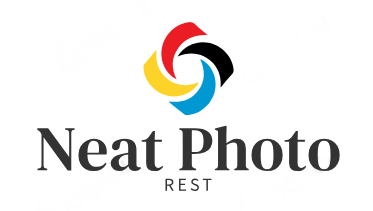Renting A Photography Studio
Step into a world of incredible opportunities when you decide to rent a photography studio. Regardless of whether you’re a seasoned shutterbug looking to elevate your portfolio, or a newbie hoping to seize new possibilities, renting a workspace designated for photography could just be the thing for you. It provides you with a controlled environment, where lighting, backgrounds, and props are conveniently at your disposal.
With so many different photography studios available for rent, the choices can be overwhelming. However, what is crucial to remember is that each studio comes with its own special charm and atmosphere. Selecting the perfect one is part and parcel of creating your unique visual story.
While a professional photo studio traditionally comes equipped with high-end lighting gear, many also offer additional services and facilities. These may include editing rooms, dressing rooms, and even onsite technical support. Don’t fret if you have no clue – this is where a studio manager can step in to guide you. The purpose is to help you capture your vision with as little hassle as possible.
Renting Versus Owning
Renting a studio offers countless benefits compared to owning your studio. The most obvious advantage is financial savings. With real estate prices skyrocketing, investing in a property might be too hefty for most freelance photographers. Even for successful photography business owners, it might make more economic sense to rent a studio rather than to buy one.
Renting also provides the freedom to switch locations and settings as per your project requirements. Be it a rustic warehouse in the city center or a sleek, modern studio in the outskirts – the world is your oyster. Consider your creative and logistical needs, and then go hunting for the right studio rental for your next photo shoot.
The following are the benefits of renting a studio:
- Affordable, cost-effective solution.
- Access to professional equipment.
- Flexible operating hours and schedules.
- Possibility to experiment with different locations.
- Saves you from maintenance or upgrade costs.
Helpful Tips For Finding a Studio
Before you sign any studio rental agreement, there are a few things you need to keep in mind. First, be clear about your requirements. What kind of natural light do you prefer? Which props do you need? Do they provide technical support and guidance? Are you allowed to adjust the control settings? These factors will help you decide which studio works best for your specific needs.
Second, always check the reputation of the studio before you rent it. This doesn’t mean reviews or ratings, but rather it’s about the experiences other photographers have had with them. Connect with the local photography community or network with co-photographers to get some reliable insights.
Make the Most of Your Studio Time
Planning plays a crucial role when it comes to using rented studio time efficiently. Set up a clear agenda that outlines what you aim to achieve during your studio time. Identify the shots you will take, the props you will use, and the lighting setups required.
Make a list of all the equipment and materials you will need for the shoot so you can arrive prepared. It’s always annoying to realize you’ve forgotten a critical lens or spare battery mid-shoot. And finally, keep an eye on the clock. Although many studios offer flexible rental hours, you don’t want to exceed your time limit as it may incur extra charges.
